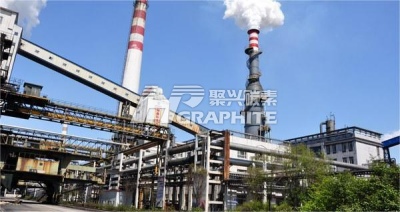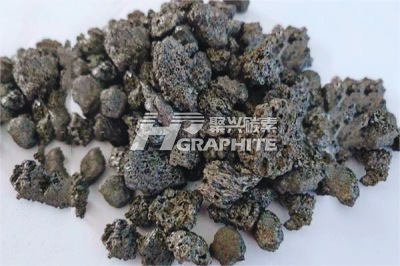【Petroleum Coke】Overall Analysis of the Petroleum Coke Industry Chain in Mid to Late January 2024

【Petroleum Coke】Overall Analysis of the Petroleum Coke Industry Chain
in Mid to Late January 2024
Primary Refineries:
In the context of Sinopec, the petroleum coke shipments from its refineries have been stable, and the refinery coke prices have remained steady in transition this week. The stocking activities of downstream long-distance aluminum carbon enterprises before the Spring Festival have essentially concluded, resulting in reduced market procurement enthusiasm. Additionally, as the prices of refinery petroleum coke have been continuously rising, some aluminum carbon enterprises are experiencing losses in production, leading to cautious and just-in-time procurement. Learn more about the market for graphitized petroleum coke (GPC) products, the overall purchasing demand in the lithium battery industry chain has been mediocre, coupled with high inventories in downstream battery cell factories and a strong inclination to clear inventory. The demand for negative electrode materials is weak, and the overall trend in inquiry and order volumes is declining, prompting a cautious approach to raw material procurement. However, the inventory of refinery petroleum coke is currently low, and the coke prices remain stable, with a focus on executing previous orders. In regions along the Yangtze River, the shipments of medium-sulfur petroleum coke remain stable, while in East China, trading of high-sulfur petroleum coke is still viable. In South China, high-sulfur petroleum coke shipments are stable, and Maoming Petrochemical's petroleum coke is entirely for internal use. In North China and Shandong, trading of medium to high-sulfur petroleum coke remains stable. Qilu Petrochemical's northern region is expected to resume production within this week. In the Northwest, high-sulfur coke is steadily shipped. This week, PetroChina's Northwest petroleum coke market has overall stabilized, and Lanzhou Petrochemical's petroleum coke indicators have returned to stability. This week, Lanzhou and Yumen refining and chemical industries have maintained stable trading. Severe air pollution in some areas of Xinjiang has hindered the resumption of downstream silicon factories, which has negatively impacted the trading of petroleum coke in the domestic market. In the Southwest, Yunnan Petrochemical's petroleum coke is shipped according to Grade 4#, with the latest prices increasing compared to the previous week. In South China, Guangdong Petrochemical's latest bid prices remain stable. This week, the overall trading in the low-sulfur petroleum coke market is unconstrained, with some refineries in Northeast and North China reducing production. The refineries' inventory remains consistently low, and the supply of low-sulfur coke is still tight. This week, PetroChina's North China Dagang Petrochemical's petroleum coke bid prices have increased by 150 RMB/ton. In Northeast China, Daqing, Fushun, Jinxian, Jinzhou, and Jilin Petrochemical's petroleum coke prices have increased by 150 RMB/ton overall, while the bid prices of Liaohe Petrochemical's petroleum coke have slightly decreased by 60 RMB/ton. Some refineries under CNOOC have started pre-sale and inventory reduction before the Spring Festival. This week, Binzhou CNOOC Asphalt and Taizhou Petrochemical's petroleum coke prices remained stable, while Zhoushan and Huizhou Petrochemical's coke prices fell by 100 RMB/ton.

Local Refineries:
This week, the overall shipments of locally refined petroleum coke are moderate, and some high-priced petroleum coke prices have started to decline, ranging from 10 to 450 RMB/ton. Specifically, as the stocking and replenishment of downstream long-distance enterprises before the Chinese New Year have essentially ended, the purchasing intentions of downstream enterprises have weakened. With the continuous rise in the price of locally refined coke, some downstream aluminum carbon enterprises are facing losses in production. They are adopting an on-demand procurement approach, and some local refineries have started to sign orders during the Spring Festival, negatively impacting coke prices. However, many refineries still have previous contracts to execute, and some low-priced petroleum coke prices continue to rebound. In Northeast China, the shipments of medium to high-sulfur petroleum coke are mediocre. Both Jin Jin Tongda and Zhongtian Haoye have slightly lowered their petroleum coke prices, and Panjin Baolai's petroleum coke sulfur content has risen from 4.3% to 4.9%. In the Yangtze River region, Jinaoke Technology's petroleum coke is steadily shipped according to Grade 4#A. In the Northwest, there is no significant improvement in downstream pickup of asphalt coke, with overall moderate shipments this week, and most are stable in price. As of January 25, there have been 6 regular maintenance shutdowns for local refining and coking units, with new maintenance for Jincheng Petrochemical's new coking unit, and some refineries have fluctuated in daily production. The daily production of locally refined petroleum coke is 38,768 tons, and the operating rate of locally refined coke ovens is 72.77%, a decrease of 2.48% from the previous week. Low-sulfur coke (around 0.5% sulfur) is generally sold at 2450-2600 RMB/ton, and medium-sulfur coke (around 2.5% sulfur) is generally sold at 1753-1930 RMB/ton. High-sulfur and high-vanadium coke (around 6.0% sulfur) is generally sold at 1030-1200 RMB/ton. The mainstream transaction price of asphalt coke in Northwest China is 2150-3800 RMB/ton.
Imported Coke:
This week, the average daily shipment from major ports is 35,850 tons, with 160,000 tons arriving at the port. The total port inventory is 4.0775 million tons, a decrease of 1.12% from the previous week.
This week, the quantity of imported petroleum coke at the port is still relatively small, and the focus of imported petroleum coke is on shipment volume. The daily shipping speed remains fast, and the inventory of port petroleum coke continues to decrease. In the sponge coke market, this week, prices for some domestic low-sulfur petroleum coke continued to rise, favoring the shipment of imported low-sulfur sponge coke. In addition, with a high willingness of traders to ship, the speed of imported sponge coke remains fast. In the shot coke market, this week, the southern fuel market has a good demand for high-sulfur fuel coke. This week, a fertilizer plant in the South has raised its bid price slightly, and the market for shot coke is stable, with stable prices in transition. In the Formosa plastics coke market, affected by the maintenance of Formosa Petrochemical, the spot supply of Formosa coke is tight, and there is still a supply gap in the market. Traders are holding firm on prices. The Formosa Petrochemical coking unit is expected to resume production today, and normal production is expected next week. This week, the bid for Formosa coke in February was launched, and most of the January shipments will be reissued in February.
Formosa Plastics Petrochemical Co., Ltd. (referred to as Formosa Plastics Petrochemical) launched the bidding for petroleum coke on February 1, 2024, on Wednesday, January 24, 2024. The closing time for the bidding was 10:00 on Thursday, January 25, 2024.
The first ship of petroleum coke in this bidding of Formosa Plastics Petrochemical is planned to be shipped from February 28, 2024 to March 1, 2024, and shipped from Mailiao Port, Taiwan, China, China. The quantity of petroleum coke per ship is about 6500-7500 tons, and the sulfur content is about 9%. The bidding price is FOB Mailiao Port.
The landed price for 2% sulfur pellets in the United States in January is approximately $170 per ton. The landed price for 3% sulfur pellets in January in the United States is around $150 per ton. The onshore price of S5% -6% high sulfur pellets coke in the United States is around $125/ton in January, and the price of pellets coke in Saudi Arabia is around $120/ton in January. The bidding price for Formosa Plastics Coke in January 2024 is 164 US dollars per ton.

Supply Aspect:
As of January 25, there are 8 regular maintenance shutdowns for coking units in China. This week, 1 additional coking unit is shut down for maintenance, and some refineries have fluctuations in daily production. As of this Thursday, the national daily production of petroleum coke is 87,868 tons, and the coking plant operating rate is 69.29%, a decrease of 0.89% from the previous week.
Demand Aspect:
The enthusiasm for procurement of petroleum coke by downstream aluminum carbon enterprises has weakened, providing limited support for petroleum coke market prices. The production sentiment of negative electrode material enterprises is not optimistic, and some enterprises have no plans for large-scale stocking before the Spring Festival. They mostly adopt a "produce as needed" approach, and the operating rate of the units is declining, resulting in a general demand for raw materials. The demand for high-sulfur shot coke in the silicon carbide industry and the southern fuel market still exists. The graphite electrode industry has fewer new orders, and shipments are mainly based on orders before the Spring Festival Spring Festival. The market is generally stable.
Local Refinery Coking Profit:
This week, international crude oil prices have fluctuated, with insufficient support from the cost side. However, downstream market trading is still viable, and the demand for pre-Spring Festival stocking of residual oil is gradually releasing. The price of residual oil in the market has risen. Due to rain and snow weather and demand effects, many are bearish on the future. As the cold wave strikes, temperatures in many places have dropped sharply, and citizens' willingness to travel has decreased. The demand for gasoline may experience a small decline, and diesel demand continues to be weak. This negatively affects the price of refined gasoline and diesel in Shandong. Prices of other by-products of coking units have increased to varying degrees, but overall, the profit of local refinery coking units has still fallen by 21.11% compared to the previous week.
Inventory Aspect:
This week, the overall shipments of refinery petroleum coke have been differentiated, with reduced market procurement enthusiasm from downstream enterprises. Refineries mainly focus on executing previous contracts, and petroleum coke inventories continue to be maintained at a low level. The shipping speed of port petroleum coke is still fast, coupled with the recent low quantity of newly arrived petroleum coke at the port, and port petroleum coke inventories continue to decrease. For more information on the petroleum coke industry chain, welcome to contact us for details.
No related results found








0 Replies